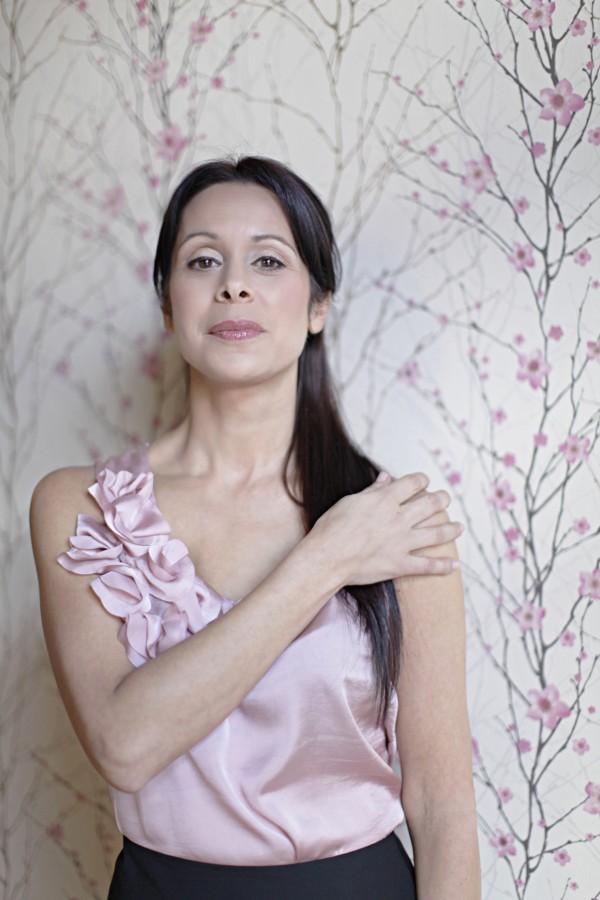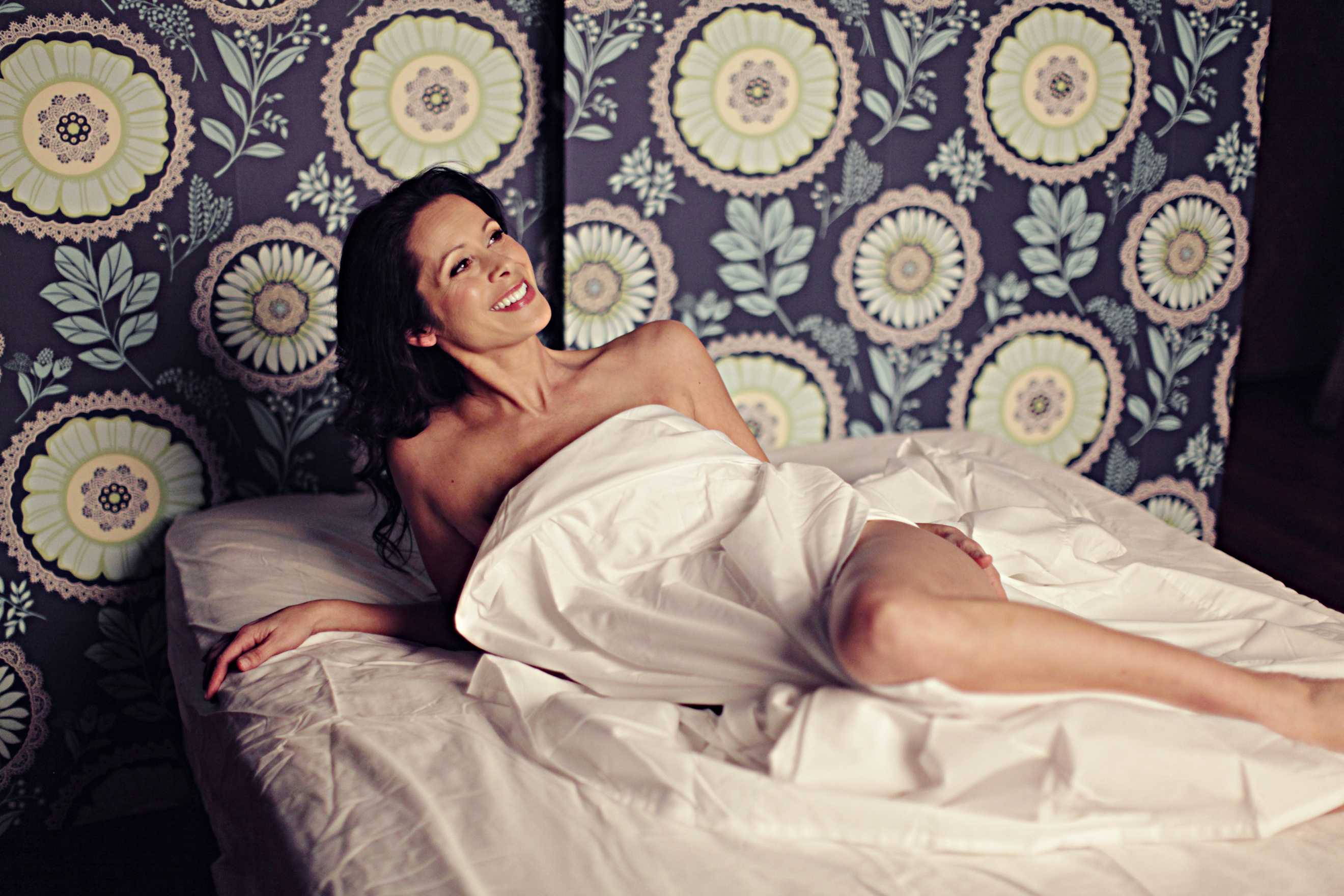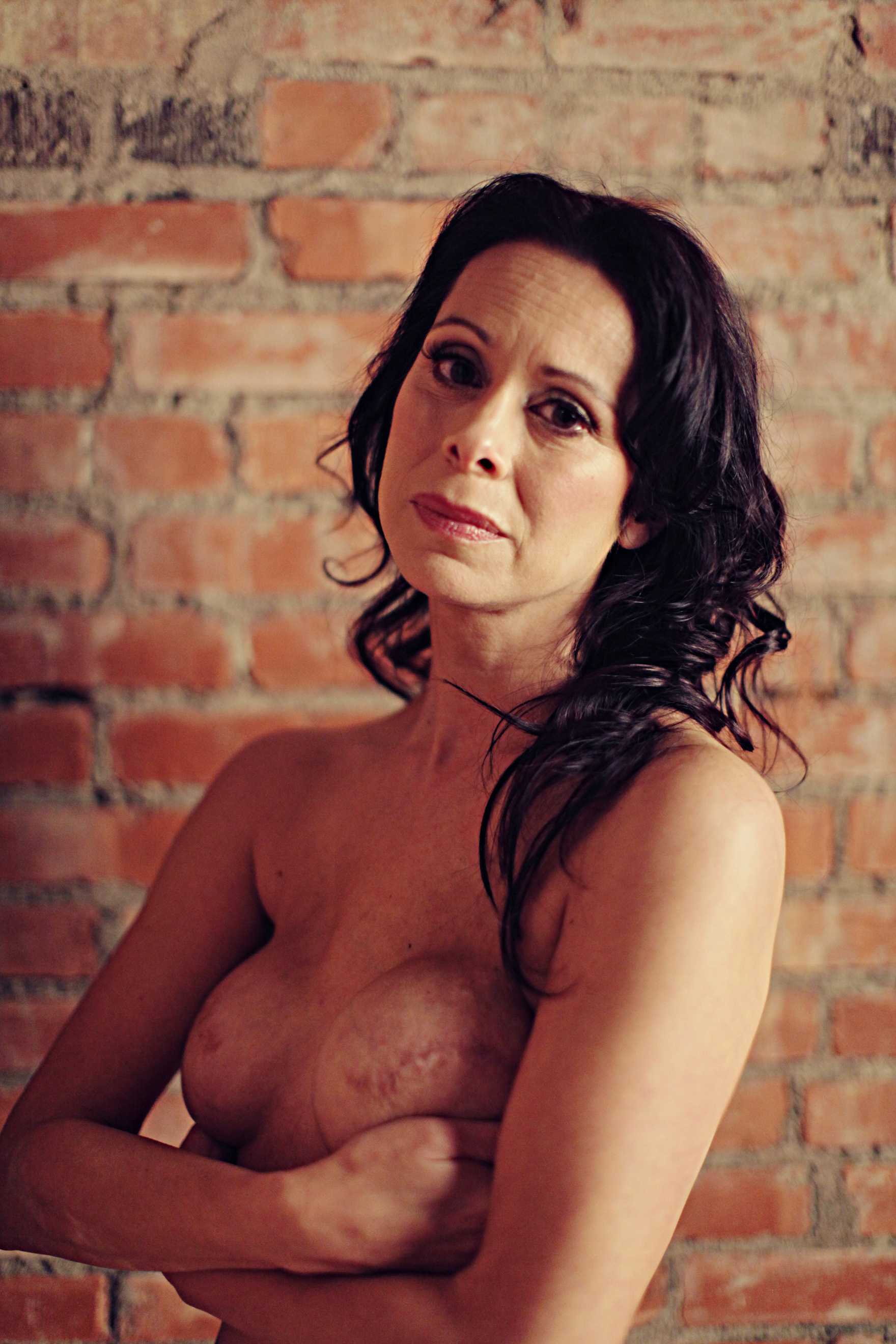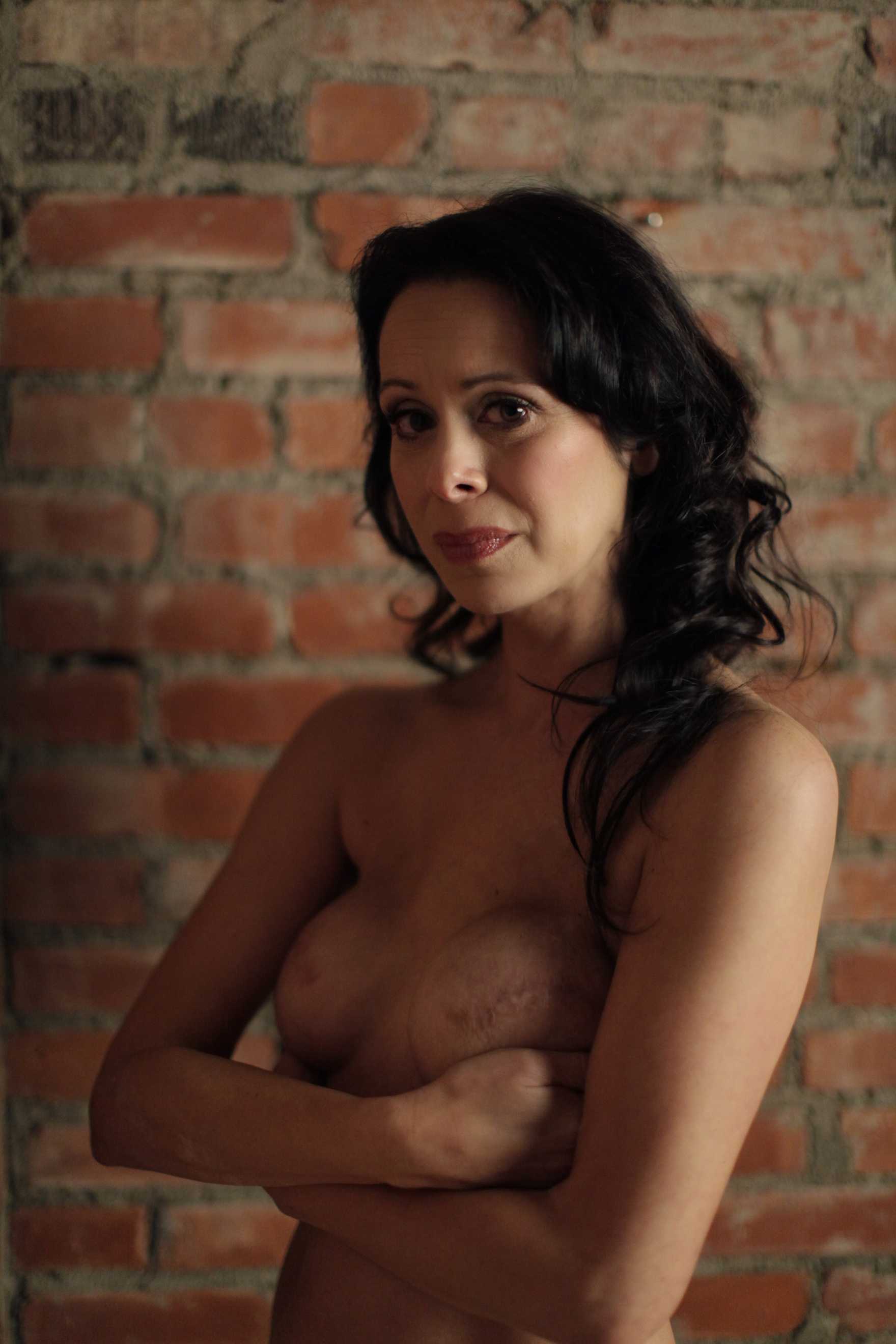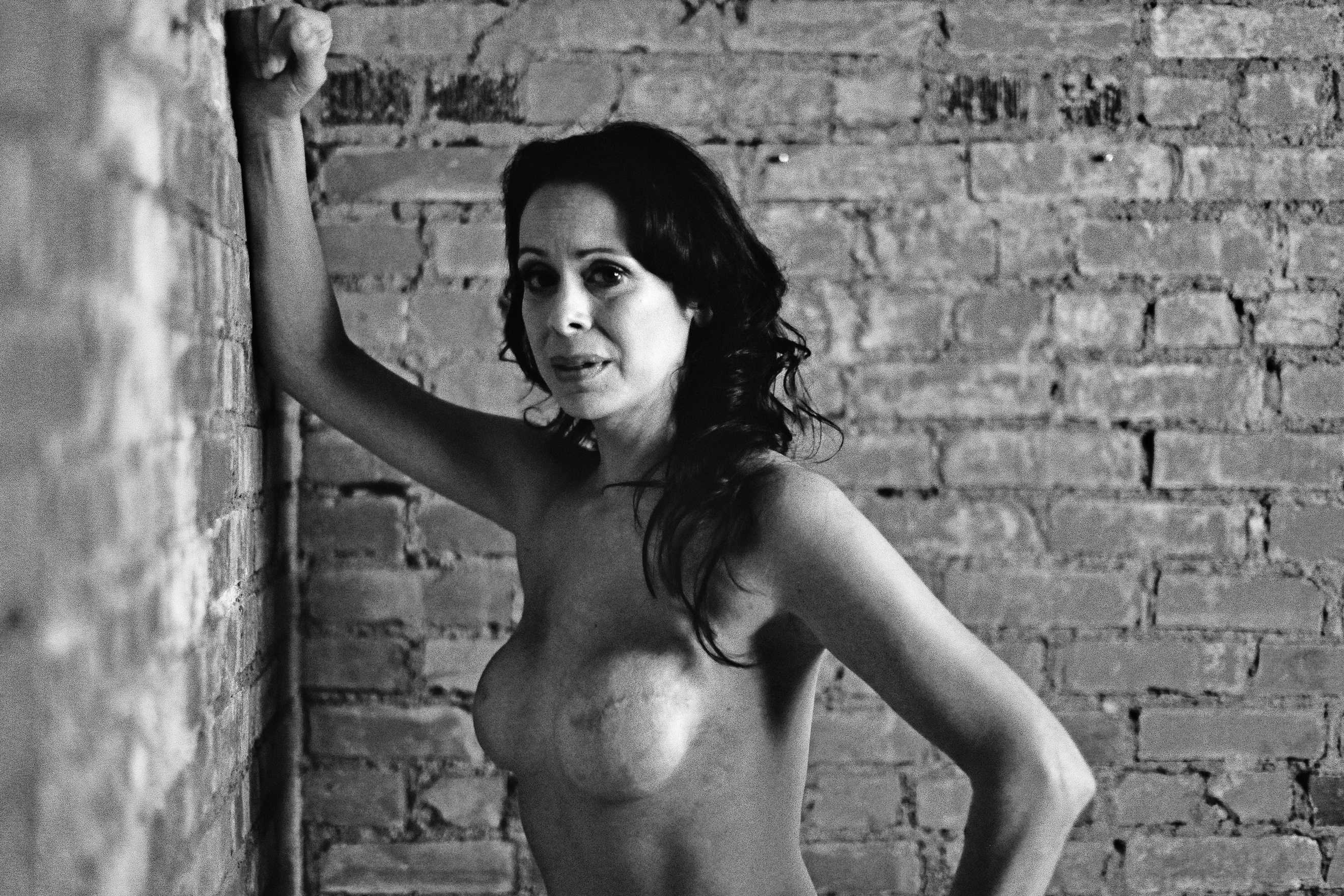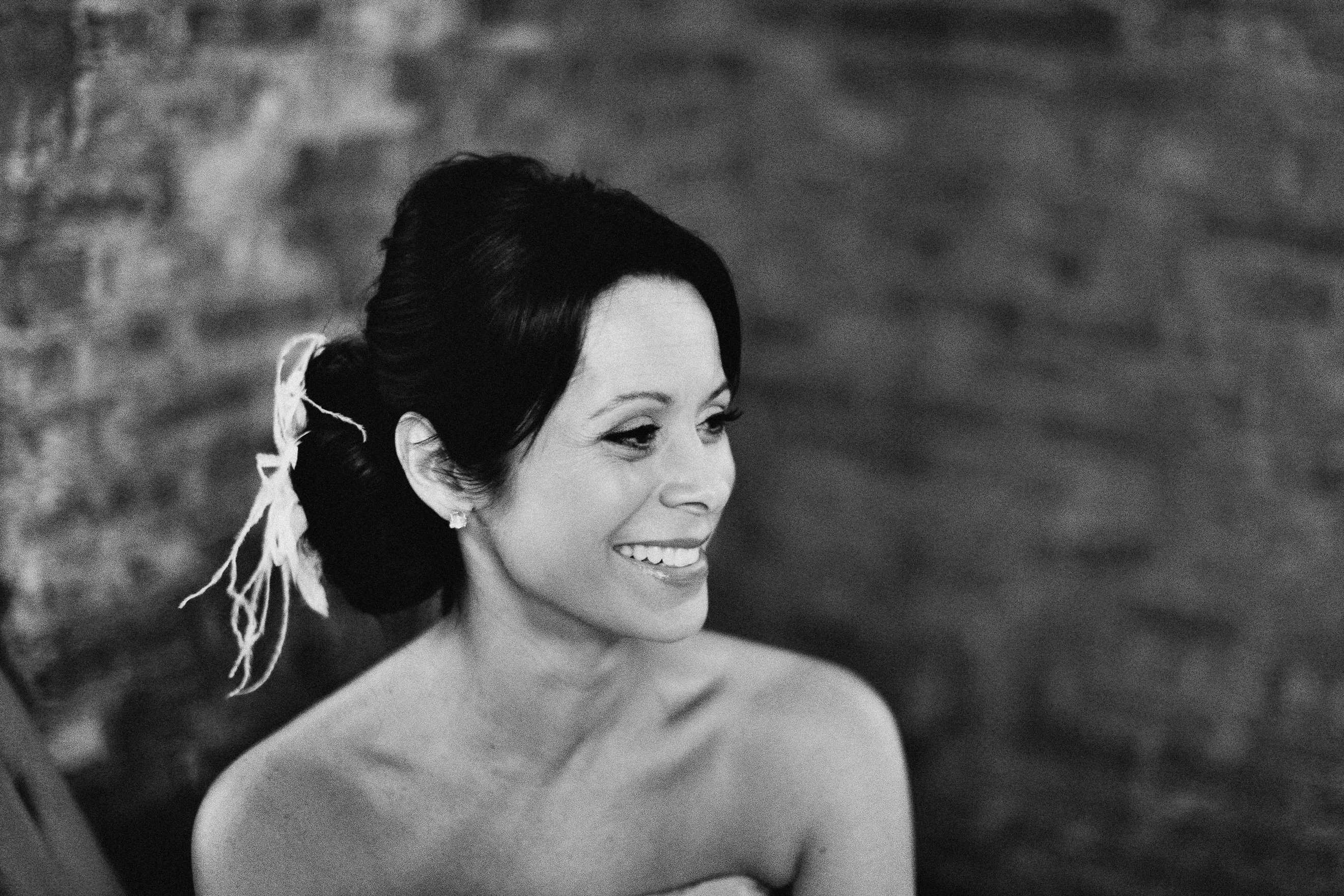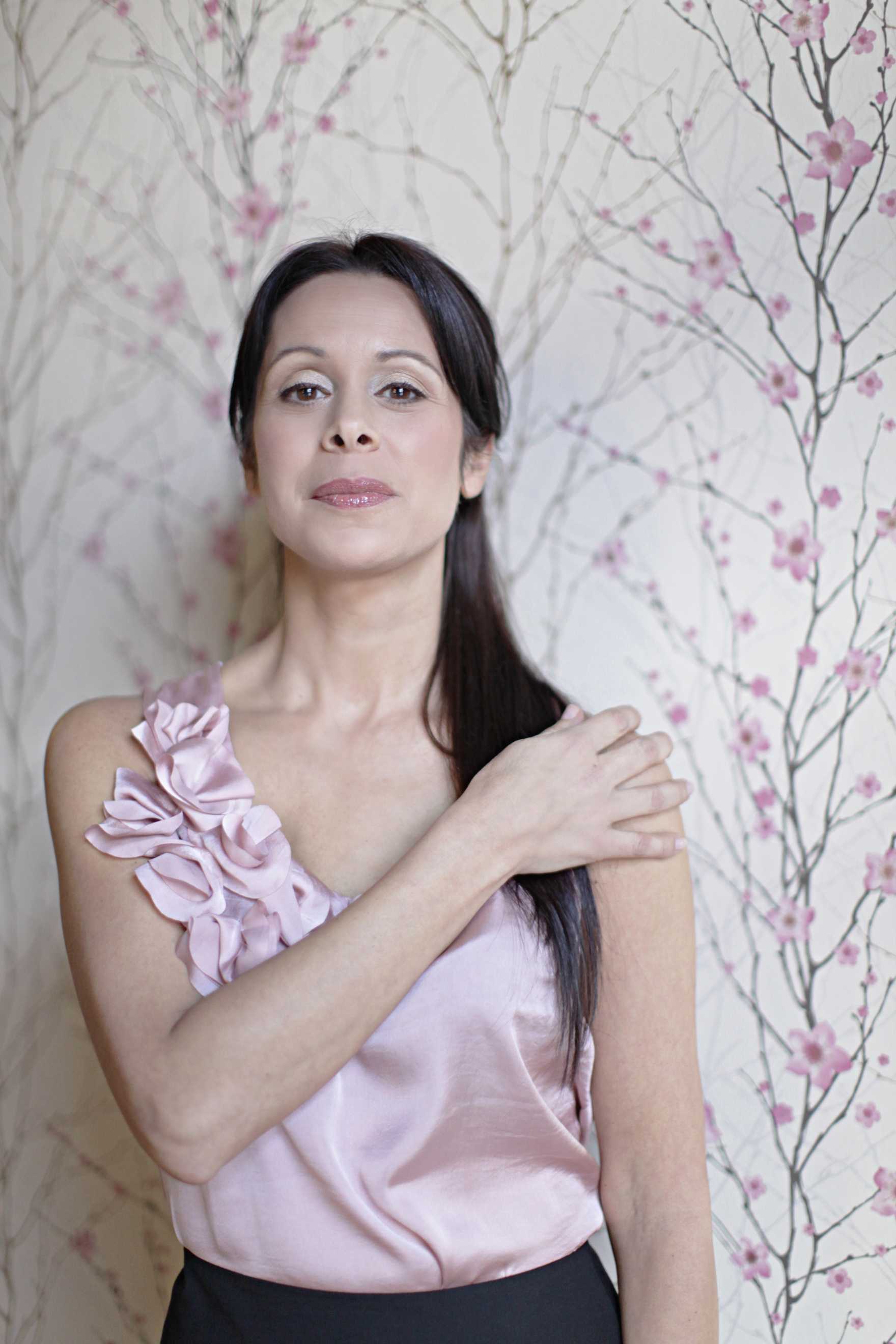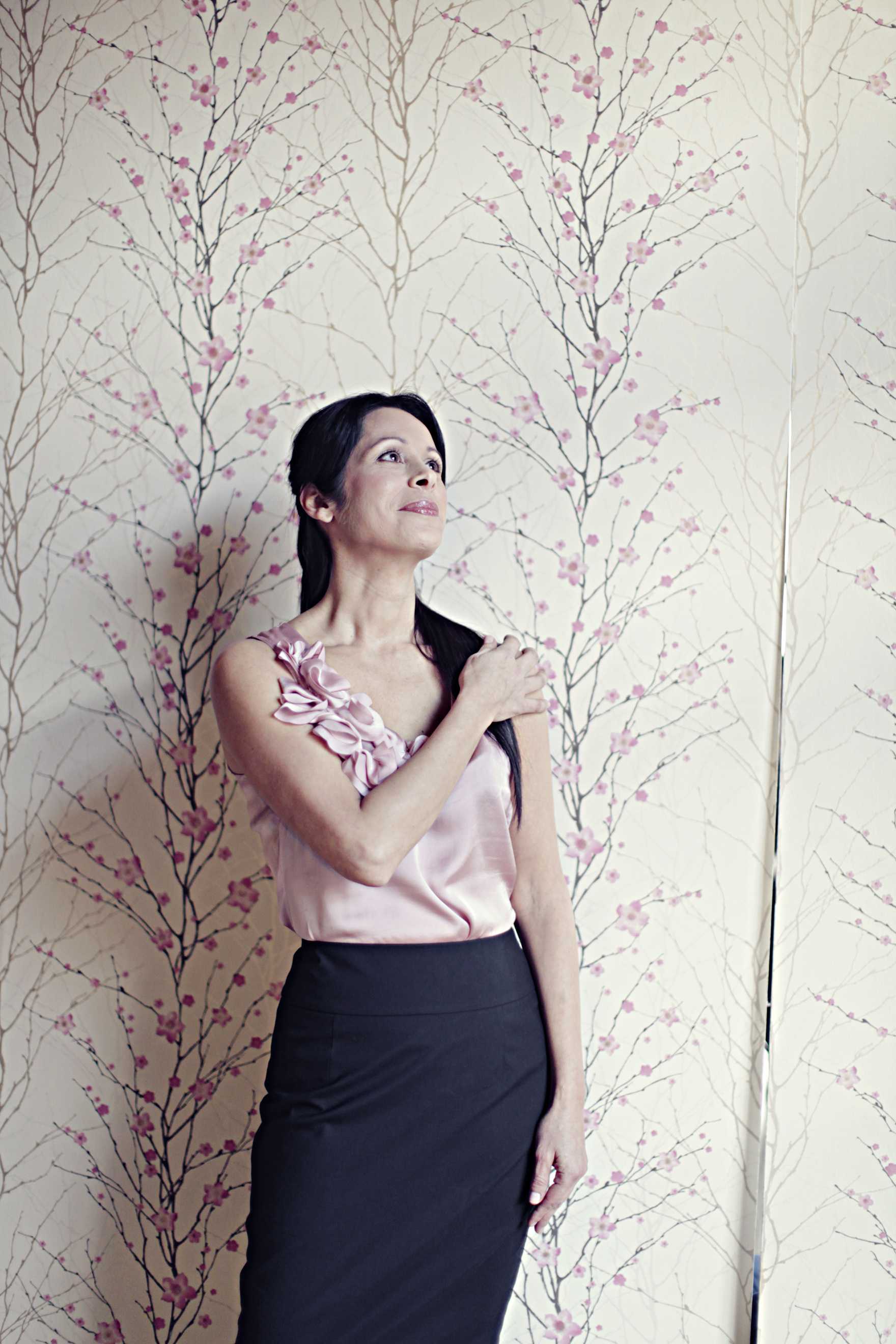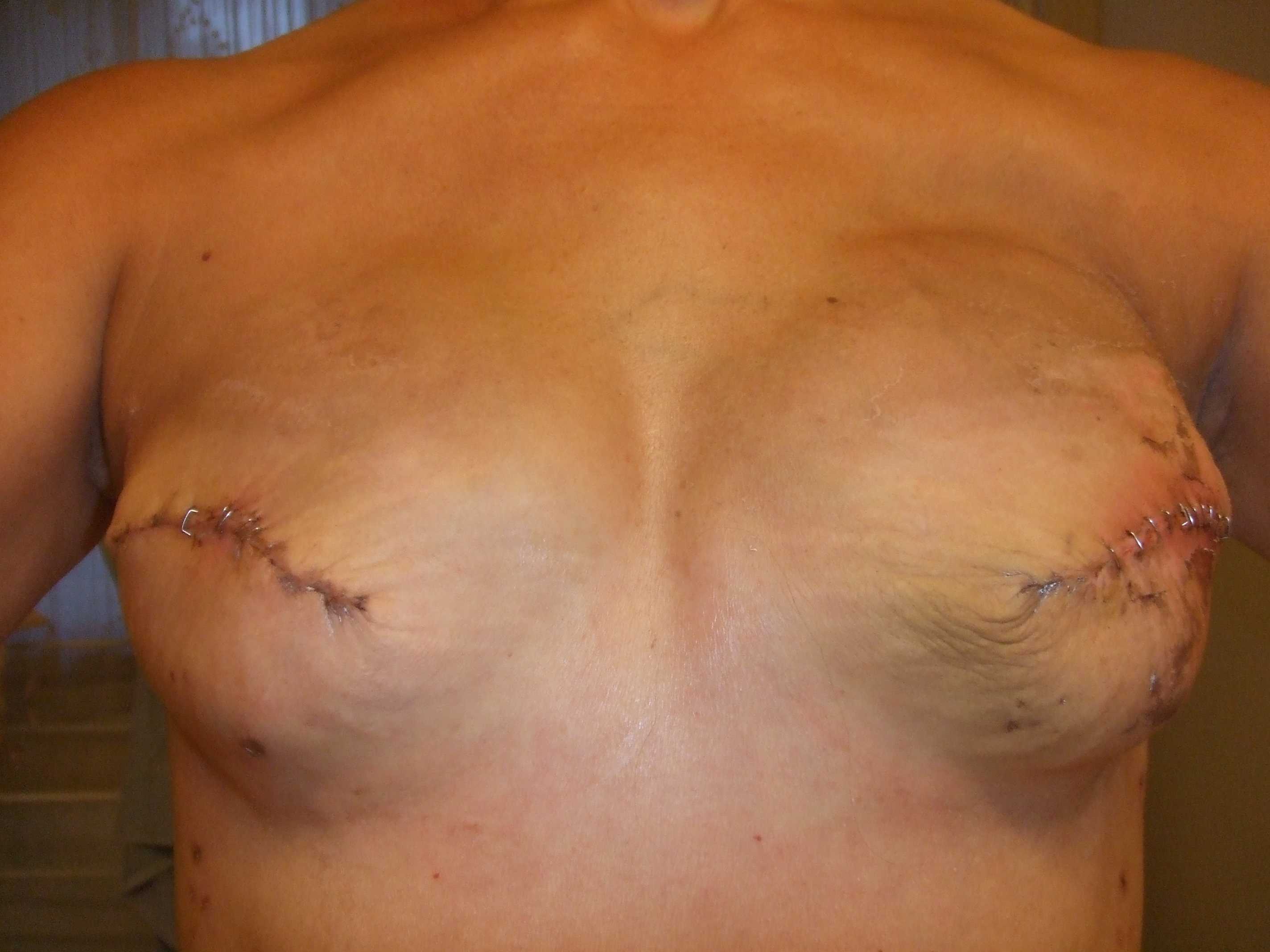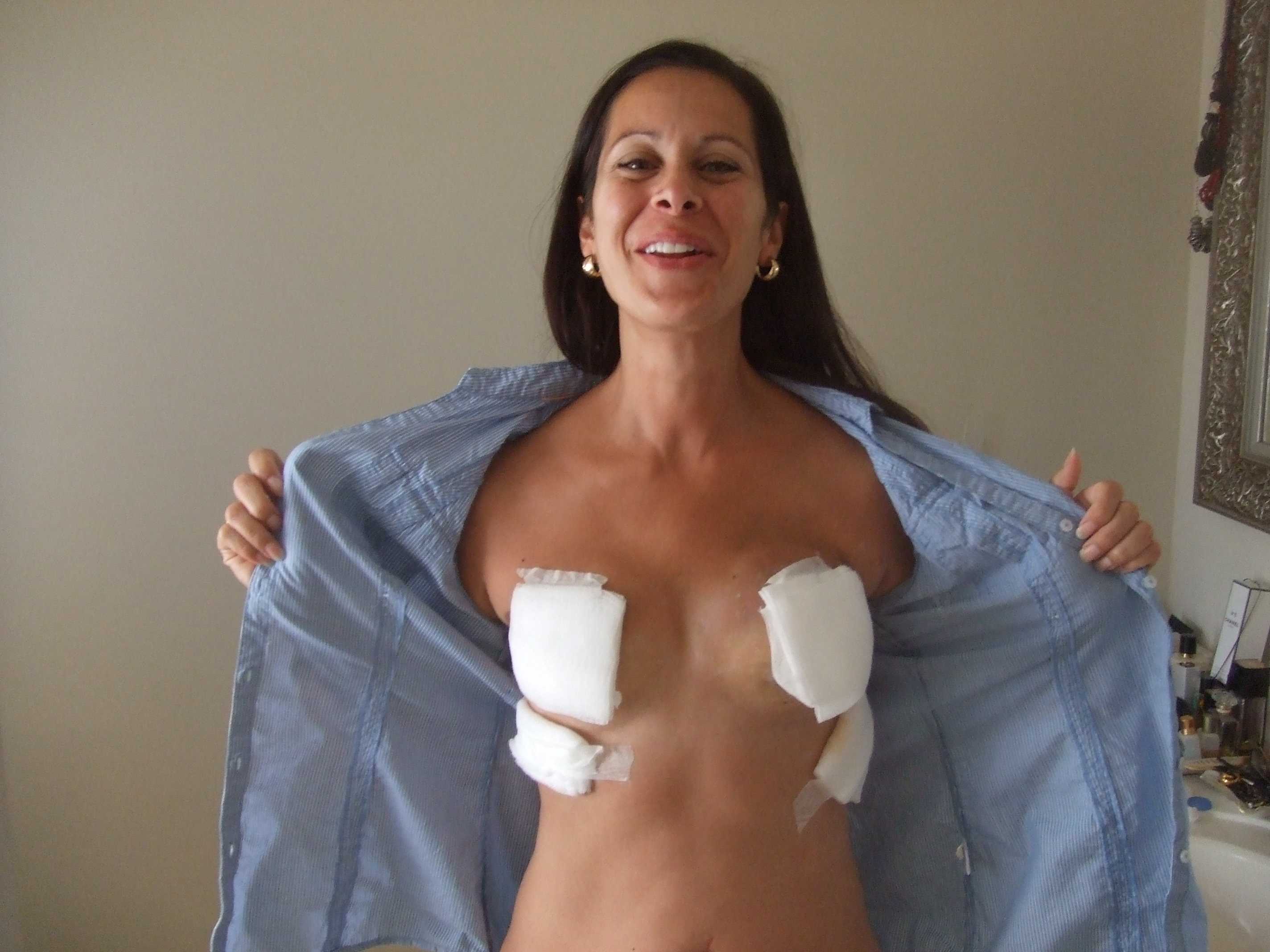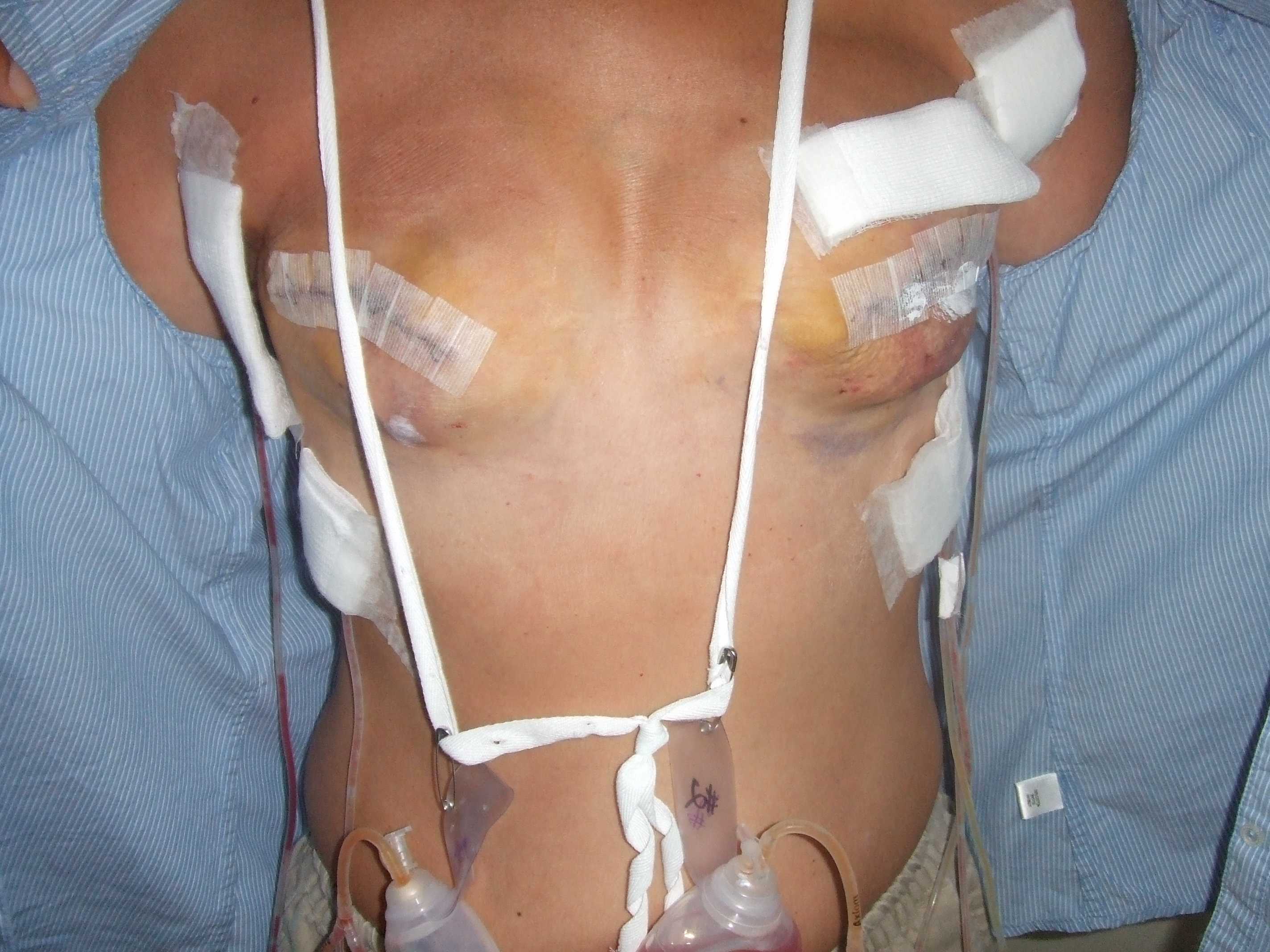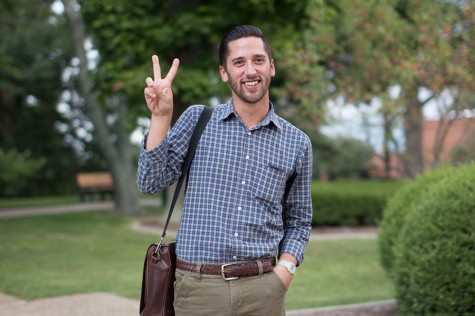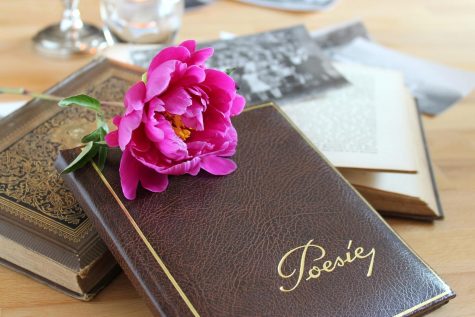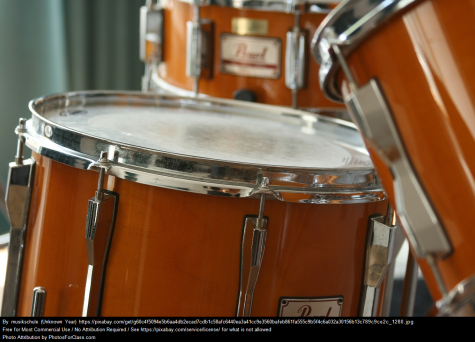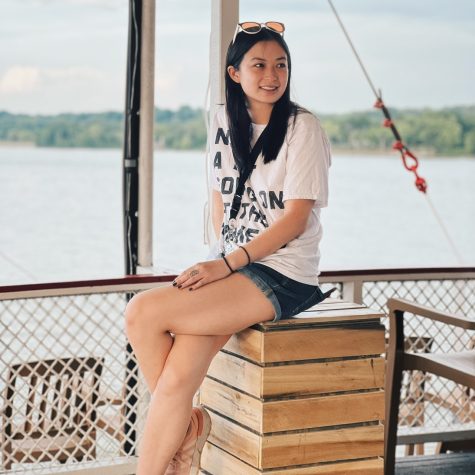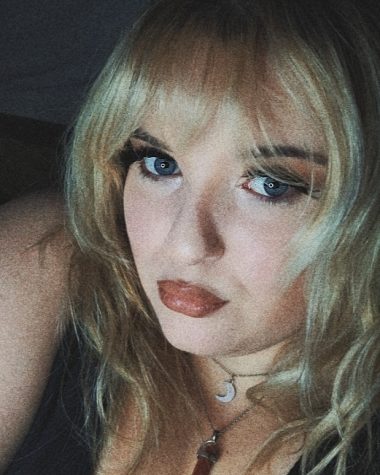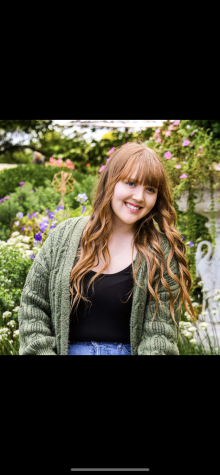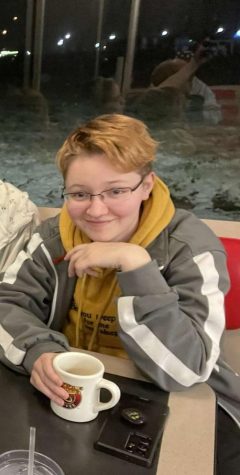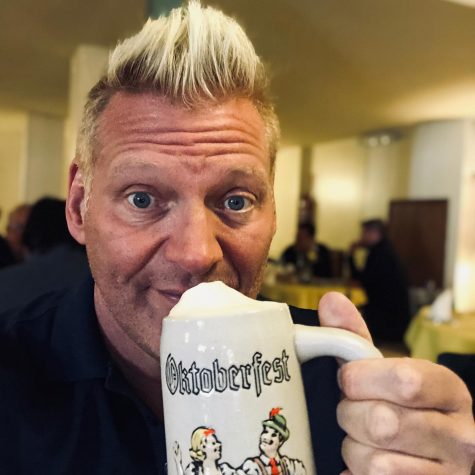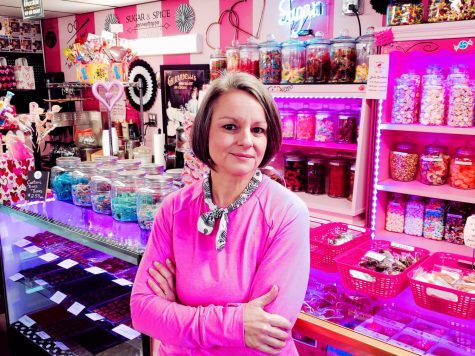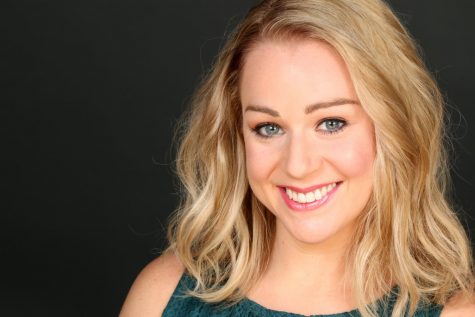Cancer: A battle of mind, body and spirit
Erika Del Pilar Bouttier was diagnosed with breast cancer at 41. She had no family history of cancer, no abnormal lumps, and never a suspicious mammogram. Now, even years later, Bouttier bears the scars from her battle with cancer. Photo by Angela Anderson Photography
October 20, 2013
Cancer is painful. From the diagnosis to the numerous surgeries and treatments, those with cancer experience a pain only one who has fought that terrible battle knows. Radiation, chemotherapy, stitches, staples and infections are just a few of the physical traumas endured by cancer patients. Those ailments, however, are only the ones visible to an outsider. The sufferings of people with cancer go far deeper than visible to the naked eye.
“You’re in constant pain,” said Erika Del Pilar Bouttier. “It was extremely painful. I’m talking about even breathing — just breathing hurt.”
Erika, who divides her time between Louisville and Elizabethtown, Ky., was diagnosed with breast cancer at the relatively young age of 41. She had no family history of cancer, no abnormal lumps, never a suspicious mammogram, when she went in for a regular check-up that was one year overdue. Ductal carcinoma in situ was the name of her cancer.
Less than three weeks later, she was on the operating table at Baptist Hospital East for a double mastectomy, the surgical removal of both breasts. Though her mammogram showed abnormalities only in her left breast, the chances of reoccurrence in her right breast were high, so she made the decision to have both removed.
“I did not want to live my life with the constant fear and anxiety of wondering when I would get cancer again,” she said.
The surgery, which lasted more than four hours, was performed by a surgical oncologist and a plastic surgeon. The oncologist removed all of her breast tissue, and the plastic surgeon placed temporary expanders and a small amount of saline behind her chest wall muscles. These temporary expanders formed her new breast mounds that would later be expanded and replaced with artificial implants.
The double mastectomy was the first of six surgeries in the reconstruction process and multiple subsequent complications over the next year and a half.
Judy Myers, associate professor of nursing, said for women with breast cancer, alteration in body image has tremendous grief that goes along with the physical loss. While 96 percent of early breast cancer diagnoses
are curable, Myers said, side effects like depression and sleep deprivation take a toll on the patients’ quality of life for years after the cancer is removed.
Myers conducts research at the Floyd Memorial Cancer Center which explores how non-pharmacologic therapy can be
used to treat common side effects like fatigue and sleep disturbance. Her research involves the use of massage therapy to help lessen the impact of these side effects, and their preliminary findings suggest that holistic
approaches are beneficial to women coping with breast cancer.
“Within our healthcare system, people with cancer or other diseases are oftentimes viewed as broken machines,” explained Myers, whose mother was diagnosed with breast cancer in the midst of her research.
“The human body is treated like a car that can be repaired by simply replacing a part, but that is simply not the case,” Meyers said. “Complete healing requires a more holistic approach—one that includes the mind, body and spirit. Too often women come out of the system feeling dehumanized. We are fortunate to have a community
hospital that supports holistic, integrative cancer care.”
The uphill emotional battle that so many cancer victims experience is one to which Erika is no stranger. She described having cancer as a very lonely experience. While her family and friends were of great support, many people, she said, “have this idea that four or six weeks after your surgery you should be fine, but that’s not the way it is.” The grief and emotional pain she suffered lasted long after the surgery.
“You feel mutilated,” she said, her voice shaking. “If you look at me now, physically it looks like I have breasts. But I know they are not real. I still have these images in my mind of not having anything there. You feel absolutely mutilated.”
When diagnosed with breast cancer, Erika found herself face to face with mortality and needed something to give her physical and emotional strength. For her, that thing was ballet.
Erika had studied ballet since the age of 3. She eventually put her passion for dance aside to raise her three children, but her daughter, Ali Gruber, followed in her footsteps. Erika said she loved being in the studio watching her dance; it was a reminder of how much she loved it.
After her surgery, she set a goal to dance side by side with her daughter in the advanced class.
Meeting her goal was mentally and physically challenging. The pain in her chest and back muscles was intense, but she was able to lose herself in the art and forget about the pain, even if only momentarily. She eventually achieved her goal and danced next to her daughter. A few months later, the director of the school offered her a
position teaching ballet, something she had always dreamed of.
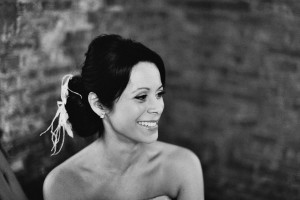 Ali said it was difficult to see her mother struggle to accept and adapt to her new body.
Ali said it was difficult to see her mother struggle to accept and adapt to her new body.
“For a woman to lose that part of her body, it’s not only physically traumatic, but emotionally, too,” she said. “She is finally seeing that she is still the same person and physical changes aren’t going to get in the
way of who she is or what she wants to do.”
Ballet was a therapeutic part of a more holistic healing process that helped Erika overcome the emotional suffering she experienced with the cancer. It was cathartic and healing, both mentally and physically. It helped her regain physical strength, as well as the confidence and self-worth the cancer had stripped her of.
She wrote in her journal during that time: “The fact that I am not perfect is part of my beauty.”
That saying became her mantra and inspiration. Before the completion of her breast reconstruction, Erika had a professional photography session with Louisville photographer Angela Anderson. During the photo shoot, right as she started to remove her bra she started to cry. Anderson, also in tears, asked if she wanted to stop, but Erika chose not to. She wanted to capture the real emotions she was experiencing.
“I took the photos because I wanted to feel beautiful about myself and my body — and it really was therapeutic. I felt empowered. I felt sexy and beautiful. But it took me a long time time to remember that I am still a beautiful woman—inside and out.”
Erika said one of her biggest supports was her close friend Kellie, who lived in Washington, D.C., and had been battling cancer for several years when Erika received her diagnosis. Kellie was her biggest inspiration. She never complained about the pain and always had a positive outlook on everything.
“She took everything in and enjoyed every moment. She taught me to stop worrying about the future or the past, to appreciate everything around you, to stop and smell the roses. She was a great support and role model.”
Kellie lost her life to cancer a year and a half after Erika was diagnosed.
Even though Erika said she considers having cancer one of the most difficult and painful experiences of her life, she said it helped her realize how strong she was. She learned from Kellie’s example to maintain a positive outlook and be as proactive as possible. Overcoming the pain of the disease — mental, emotional and physical—was not an easy burden to overcome, she said, but she never wanted to give up.
“I didn’t realize, even during that time, how courageous I was. It wasn’t until after the experience that I stepped back and thought, ‘Wow, that was really tough, but I got through it.’”
Note: To demonstrate the true extent of the of physical and emotional healing process, these photos include some images of breasts.

